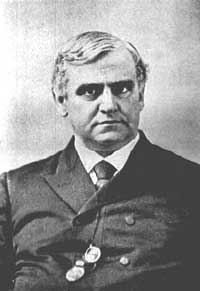Do not pray for easy lives. Pray to be stronger men. Do not pray for tasks equal to your powers. Pray for powers equal to your tasks. Then the doing of your work shall be no miracle, but you shall be the miracle.

"Phillips Brooks" was an Episcopal Church in the United States of America/American Episcopal clergyman and author, long the Rector (ecclesiastical)/Rector of Boston's Trinity Church (Boston)/Trinity Church and briefly Episcopal Diocese of Massachusetts/Bishop of Massachusetts,
and particularly remembered as lyricist of the Christmas hymn, "O Little Town of Bethlehem".
In the Episcopal liturgical calendar he is remembered on January23.
If you enjoy these quotes, be sure to check out other famous clergy! More Phillips Brooks on Wikipedia.A prayer in its simplest definition is merely a wish turned Godward.
Self-confidence is either a petty pride in our own narrowness, or the realization of our duty and privilege as God's children.
Character may be manifested in the great moments, but it is made in the small ones.
Be such a man, and live such a life, that if every man were such as you, and every life a life like yours, this earth would be God's Paradise.
It is while you are patiently toiling at the little tasks of life that the meaning and shape of the great whole of life dawn on you.
No man has come to true greatness who has not felt that his life belongs to his race, and that which God gives to him, He gives him for mankind.
Life comes before literature, as the material always comes before the work. The hills are full of marble before the world blooms with statues.
I do not pray for a lighter load, but for a stronger back.
No one who has come to true greatness has not felt in some degree that his life belongs to the people, and what God has given them he gives it for mankind.
Call your opinions your creed, and you will change them every week. Make your creed simply and broadly out of the revelation of God, and you will keep it to the end.
The ideal life is in our blood and never will be still. Sad will be the day for any man when he becomes contented with the thoughts he is thinking and the deeds he is doing -- where there is not forever beating at the doors of his soul some great desire to do something larger, which he knows that he was meant and made to do.
Copyright © 2024 Electric Goat Media. All Rights Reserved.